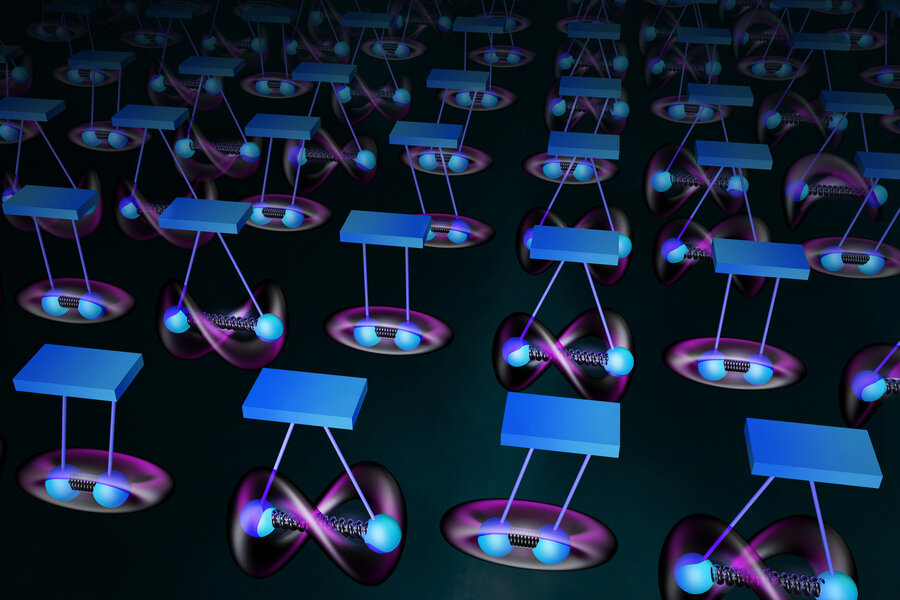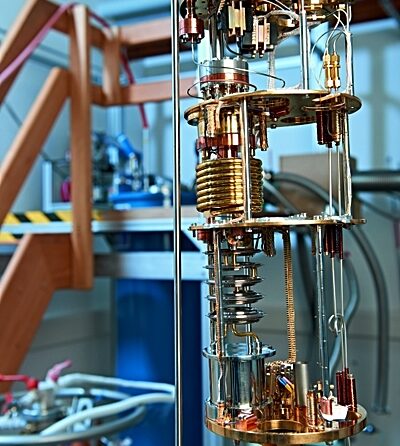Physicists at MIT have discovered a new qubit, in the form of vibrating pairs of atoms known as fermions. The new qubit appears to be extremely robust, able to maintain superposition between two vibrational states, even in the midst of environmental noise, for up to 10 seconds, offering a possible foundation for future quantum computers.
The team was able to maintain this state of superposition among hundreds of vibrating pairs of fermions. In so doing, they achieved a new “quantum register,” or system of qubits, that appears to be robust over relatively long periods of time.
The team’s discovery initially happened by chance. Zwierlein’s group studies the behavior of atoms at ultracold, super-low densities. When atoms are chilled to temperatures a millionth that of interstellar space, and isolated at densities a millionth that of air, quantum phenomena and novel states of matter can emerge.
The paper has been published in the journal Nature.




